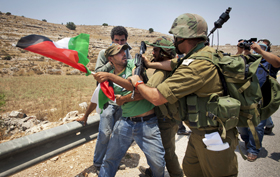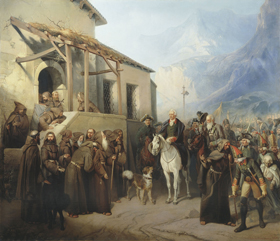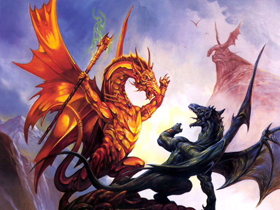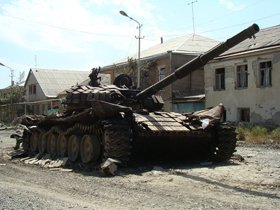Rules of victory for future international conflicts
In
Login if you are already registered
(no votes) |
(0 votes) |
Doctor of Political Science, Professor, World Politics Department MGIMO-University
Scientific forecasting of future international conflicts is a critical task, since predictions influence the present and encourage change in response to impending confrontations. Its significance is only partly mitigated by the fact that international relations have never been conflict-free. Therefore, if international relations are to survive into the future, international conflicts appear inevitable.
Scientific forecasting of future international conflicts is a critical task, since predictions influence the present and encourage change in response to impending confrontations. Its significance is only partly mitigated by the fact that international relations have never been conflict-free. Therefore, if international relations are to survive into the future, international conflicts appear inevitable.
The homeostatic stability and vitality of the state-centric international system, known as the Westphalian system, are confirmed by both political practice and theory [1]. This allows us to look into the future as far as 2148, the year that will mark the Peace of Westphalia’s 500th anniversary. The selected date will help future colleagues verify the judgments made, while contemporaries can start preparing for the upcoming anniversary without any of the usual hassles. Identifying the rules for future international conflicts, however, appears a much more difficult task.
How to identify the Rules Governing International Conflicts in 2148?

An unidentified protester holding a Palestinian
flag scuffles with Israeli security forces during
a joint pro-Palestinian demonstration held by
foreign, Israeli and Palestinian demonstrators in
the West Bank village of Nabi Saleh, Saturday,July 9, 2011
In view of the limitations inherent in a linear understanding of international relations as a planetary conjugation of heterogeneous social processes, it makes sense to approach the problem inductively, i.e. by generalizing and extrapolating from the available data into the future, which is completely different, for example, from building scenarios of that future.
The method used in developing this kind of forecast involves extrapolating a time-series of conjugated processes and carrying out a balance analysis on them with given space-time coordinates. This is different from the scenario approach, due to the latter’s insufficiency or inability to extrapolate, and the educational value of this approach is not the forecast itself, but defining marginal alternative corridors of opportunity for the processes under examination [2].
The forecast’s focus on the repeated and reproduced characteristics of international relations and future conflicts helps to identify common rules determining participants’ interaction in international relations. For example, the rules that apply to playing the enfant terrible in inter-bloc confrontation appear to be the same, despite the palpable differences displayed by Romania in the Warsaw Pact, France in NATO, and Italy in the Triple Alliance, etc. Success in any search depends on having a clear understanding of what we are looking for. Most domestic and foreign policy experts understand the term rule (sometimes implicitly, but often just “by default”) to mean common and socially accepted norms or established principles that exert a regulatory function, a formally or informally established order of activity, historically or intentionally introduced standard of conduct. This understanding is used in this article.
Conflicting Rules
Despite the variety of forms and methods of solution, there is a clear mismatch or clash between the two rule-types determining the participants’ behavior. This clash occurs between the currently recognized norms and principles of international law that govern states’ interaction in the world arena, and the life rules of a social medium that functions like a socio-political network, and which are applied in times of international conflict. These rules imply compliance with requirements of criteria for conflict behavior in order to preserve society, boost efficiency, and successfully attain the stated goals. Network Rules are inherent in any viable society, and, consequently, in a developing global society (if, of course, it is to survive).
The collision between Network Rules, focusing on efficiency and expediency of conflict behavior on the one hand, and Cooperation Rules covering norms and principles of international relations on the other hand, may seem quite trivial in an international conflict. However, it does emphasize the profound inner distinction peculiar to these two rule groups.
But if the current trend of Russia’s “setback” continues, there is a danger that the country’s role will shift from being that of mediator and peacemaker to generating international conflicts over resources, territory and markets.
Participants recognize the international legal principles and norms governing participation in any particular system of international relations as applicable to the current space-time continuum. Even with the same name, these norms and principles may differ from those that had been in force at some other time in other systems of international relations. For example, the principle of Russian sovereignty as a member of the Holy Union or United Nations implies different things not only in its content, but also in the rules governing participation in interstate relations. Although these rules are venerated as an ideal model of interaction, countries follow them selectively in accordance with their particular interests, changing the political situation both at home and abroad. It should be noted that, by joining a particular international system through recognizing and following the rules currently in force, a country does not pave the way for its success in conflicts with other actors in the same system.
Rules of Victory

Adolphe CHARLEMAGNE - Field Marshal
Alexander Suvorov at the top of the St. Gotthard
September 13, 1799 Victory Rule formulated by
the famous Russian General Suvorov: to surprise
means to win
International conflicts in the future, like those of the past and present involve a conscious, purposeful activity based on what can be called the Rules of Victory. Two well-known expressions should serve to substantiate this statement: “My enemy’s enemy is my friend”, and “If you want peace, prepare for war.” The rule that, in a critical situation, a small victory over an external enemy (even an imaginary one) quickly improves the authorities’ prestige and strengthens society’s political stability has been applied and proved true countless times. Although moralists repeatedly refute the accuracy of the rule saying that a sensible leader cannot and should not keep a promise that contradicts his interests, it still forms an integral part of political life.
The Rules of Victory, applied within a social and political network, do not guarantee complete success, but can prove quite effective in achieving favorable, if temporary, results during the conflict. The start of military action by Georgia against South Ossetia on August 8, 2008, the Japanese attack on Pearl Harbor on December 7, 1941 and numerous other examples of conflicts, including purely “civil” ones, confirm the universality (and limitedness) of the Victory Rule as formulated by the famous Russian General Suvorov: to surprise means to win.
Not only “treacherous,” “unprincipled” and “aggressive” conflict participants succumb to the temptation of gaining victory by such actions. The very essence of confrontation makes an international conflict treacherous. Often, it seems to appear genuinely different from other conflicts to escape the norms and standards established by both the theory and practice of the current space-time continuum, in addition to the principles of cross-border interaction.
Arguing about future conflicts, one can say with certainty that the rules that make participants victorious are more stable and effective than the Rules of Participation in interstate interaction. When comparing different rule-types, international relations carried on outside the Rules of Participation established by international law are just as inconceivable as international relations without politics, economics or ideology. But the legal basis for international relations is subject to constant change. It is this change in the Rules of Participation that occurred within the framework of the Westphalian system, following large-scale international conflicts, which signified the transition from the Concert of Europe to the Versailles-Washington and subsequent Yalta-Potsdam systems of international relations. To avoid “systemic” confusion regarding the upcoming anniversary, these systems can be called Westphalian. Although the Rules of Participation in the interaction of states have changed repeatedly, the Rules of Victory in international conflicts have been repeatedly reproduced.
The Rules of Victory display greater resilience than the Rules of Participation and, due to their particular nature, are always inherent in conflicts both within the state-centric system and the network of socio-political relations. The Rules of Victory can vary and are constantly reproduced in different historical conditions. Their binding force is impressive enough to suggest their objective historical nature. If this is the case, they can be neither cancelled nor abolished, but attempts can be made to regulate them by developing internationally institutionalized approaches to their application. This endeavor is unlikely to be completed within the corresponding Westphalian system modus functioning in 2148.
Reality of Future Conflicts
The Rules of Victory display greater resilience than the Rules of Participation and, due to their particular nature, are always inherent in conflicts both within the state-centric system and the network of socio-political relations.
In conclusion, one can say that 2148 will be a year of international conflicts, that will occur in line with the Rules of Victory during the changeover from one Westphalian system modus to another, which is also transitional. As regards the Rules of Participation, after a large-scale international conflict (e.g. in the Middle East), the international community will have to revise and supplement the rules of international law established on the ruins of the Yalta-Potsdam system, now enshrined in the UN Charter. The concrete results of this revision will be legitimized and codified, and become the Rules of Participation in the new system of interstate interaction.
The shifting global balance of power that started in the mid-20th century and that has continued to manifest itself in the course of international conflicts throughout the 22nd century, will find a new embodiment in the content of these Rules. They will be developed under the decisive influence of established power centers and take into account the intensified interconnection of domestic, local, regional and global conflicts, as well as the increased impact of their international political components, chiefly in the sphere of international relations.

The Rule of Victory - “to sit on a high hill and
watch the dragons fight in the valley.”
Against this background, the probability of conflict among associations, including integrative ones (the prototype and precursors for this are APEC, EU, EurAsEC) is also likely to increase. In addition, there is little doubt that conflicts between the global governance institutions that will have formed by the 22nd century and those entities defending their independence and refusing to recognize these institutions’ legitimacy will ripen and almost inevitably erupt. This will largely determine the escalation and resolution of mature conflicts involving ethnic, linguistic and other identities. All these conflicts will merge with traditional ones resulting from collision of interests over resources, raw materials, technology, and national self-determination.
Being a powerful actor in the system of interstate interaction, Russia will not be able to avoid becoming involved in these conflicts. However, the change in balance of forces through interstate interaction, and the heightened international component of conflicts will also alter the specific forms of involvement. The Rule of Victory for those who find themselves in such a situation is “to sit on a high hill and watch the dragons fight in the valley.” But if the current trend of Russia’s “setback” continues, there is a danger that the country’s role will shift from being that of mediator and peacemaker to generating international conflicts over resources, territory and markets.
1. Barabanov O., Feldman D. If Westphal is Sick, the Patient is More Alive than Dead // Mezhdunarodnye Protsessy. 2007, V. 5. 3 (15). M.M. Lebedeva et al. The Treaty of Westphalia: Inter-Chair Round Table at the MGIMO University. February 27, 2008 //MGIMO-University Bulletin, 2008, 1.
2. Melville A., Timofeev. I., Russia 2020: Alternative Scenarios and Public Preferences // Polis, 2008, 4.
(no votes) |
(0 votes) |





